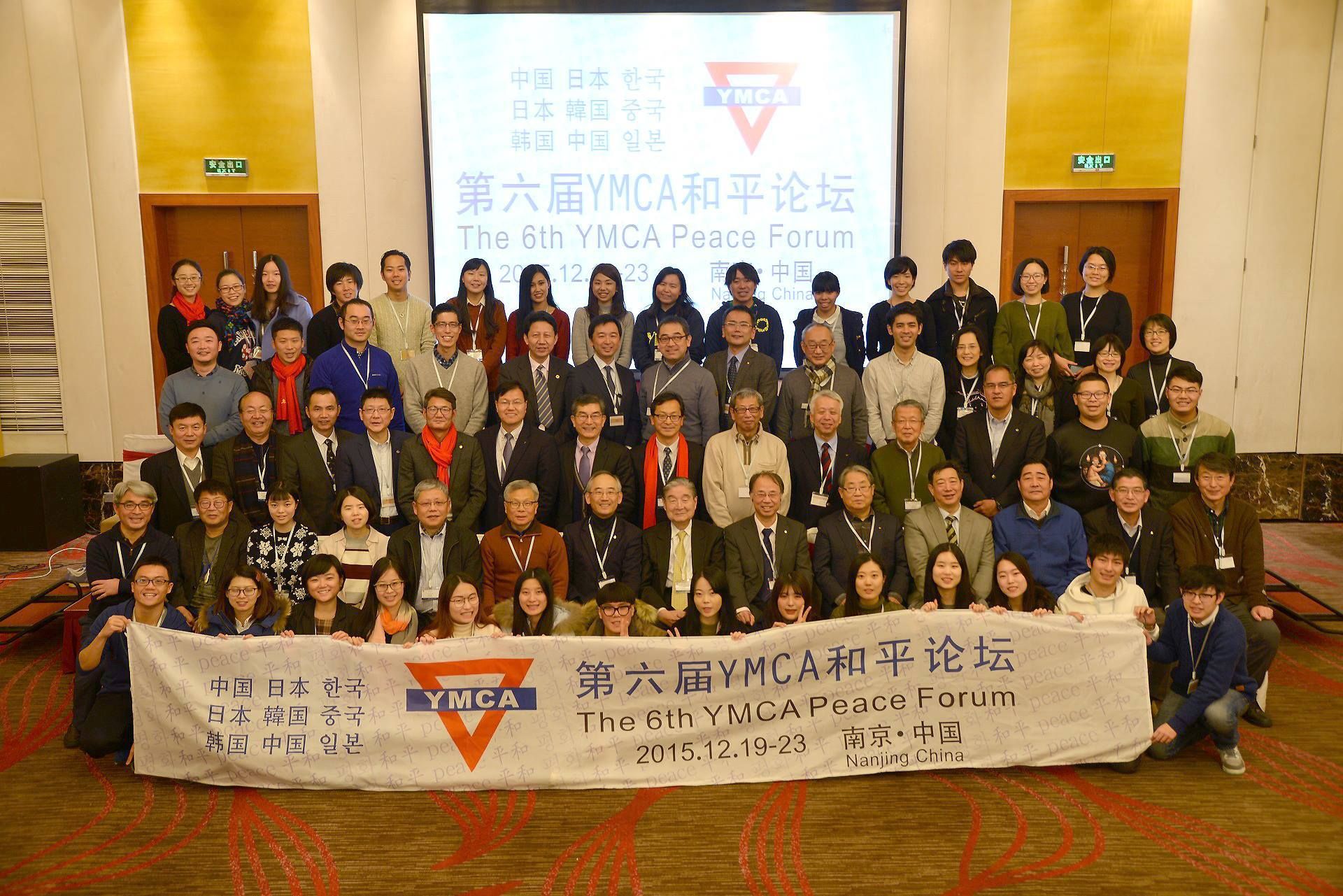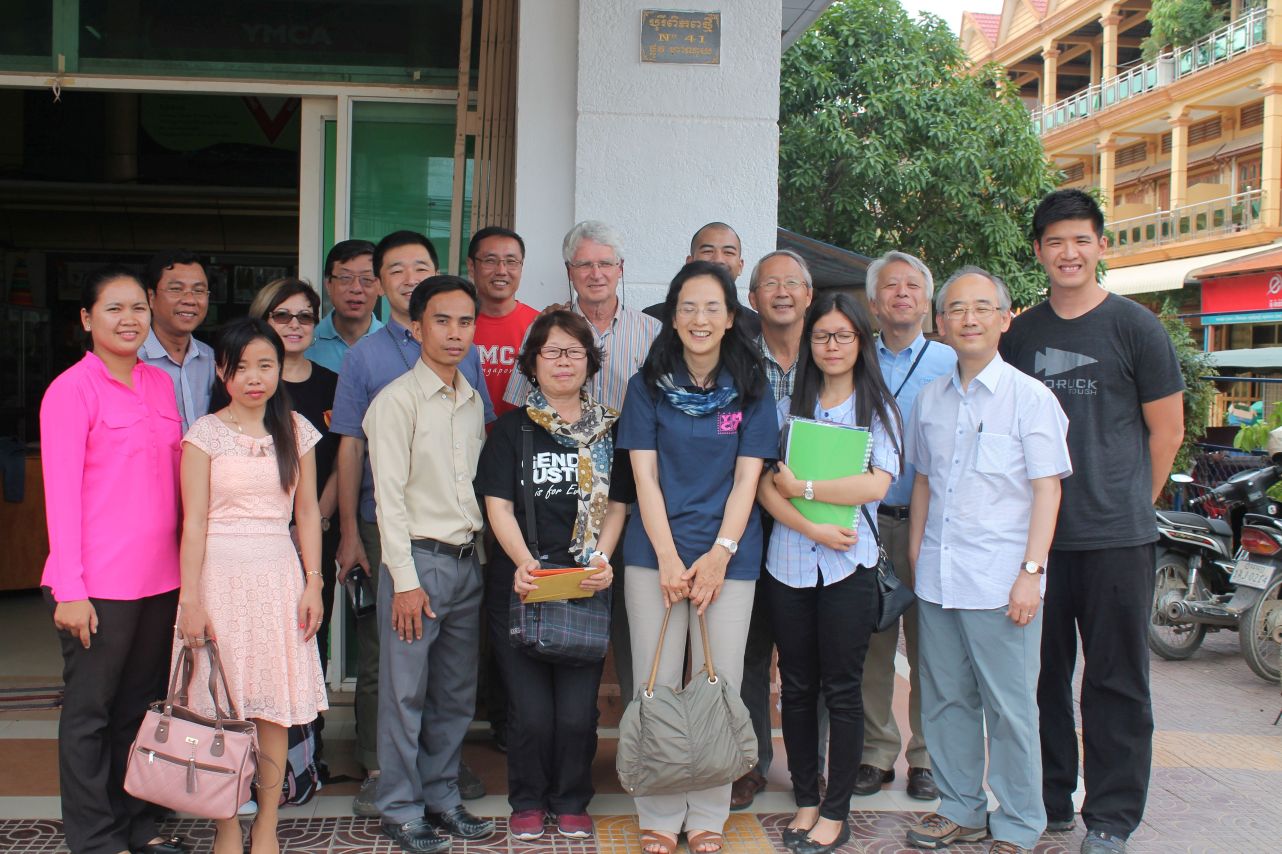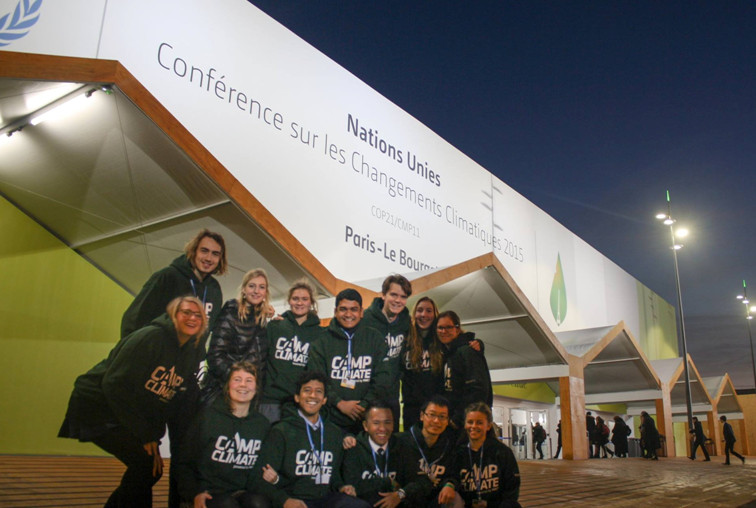↑Monthly eNewsletter of the Asia and Pacific Alliance of YMCAs
| This email contains graphics, so if you don't see them, view it in your browser. | ||||||||||||||
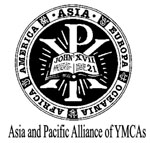  |
||||||||||||||
Forty-one participants from 14 National Movements gathered at the 4th Leaders’ Quadrennial Roundtable held in Chiangmai, Thailand last December 3-6, 2016 to work together towards a strengthened movement. As a conference of YMCA key lay leaders, youth members and professional staff, it was a time and space to discuss the ‘why’ and ‘how’ of doing our Mission given the diversities and complexities of our context and time. It was also an opportunity to renew the movement’s mission and develop a common vision and plan that translates the 19th General Assembly Mandate into mission responses for the Quadrennial 2015-2019. The process of reflection started with the input presentation on mission renewal. Despite the physical absence of Rev. Dr. Yoon-Jae Chang, keynote speaker, he inspired the participants in his paper presentation entitled Justice, Peace, and Life: An Ecumenical Trinity Agenda for YMCAs in Asia and the Pacific which was read by the APAY staff. In his paper, he repeatedly reminded everyone that YMCA is a movement organization working to establish God’s kingdom on Earth, as such following Jesus’ Movement. He emphasized that God’s reign on earth concretely means the reign of God’s justice, peace and life in which everyone is called:
~Nam Boo Won, General Secretary, APAY Cambodia YMCA ProgressingThe Cambodia YMCA is progressing with various relevant programs and by the full support of the PSG (Partners Support Group). The PSG met in the Cambodia YMCA office on 11-12 Nov. 2015. The meeting was attended by Kazuki Yamane (NCYJ), Ayako Takamura (Yokohama YMCA), Lo Chee Wen, Andrew Leo and James Ji Jiayu from YMCA of Singapore, Diana Versace (CFO of Perth YMCA), Bernard Downey(Board of Nelson YMCA) and Kohei Yamada and Nam Boo-Won from APAY. From Cambodia YMCA, new board members; Rev. Son Srun, Ms. Mary Moung (VP, Government worker), Rev. Dara, Ms. Mamali (Medical student) were with the PSG together with the YMCA staff including Bunthok, General Secretary. The new President Rev. Ok Libounna (Director of CWS) joined at the evening dinner. In the meeting, the ongoing programs of Cambodia YMCA were shared by Bunthok and appreciated by the PSG that include Street Children Project, Youth Development Program, Alternative Tourism Project, Service to the poor elderly, and Education for Children. It was also reported that a Siem Reap Project started for children and women there from fall 2015 by the support from Yokohama YMCA, Japan. A new program called ‘Youth Institute’ will begin early 2016. It aims at creating a safe and positive place where youth can learn to respect and help others in needs apart from their learning to build social, academic and computer skills. Through this process, they gain confidence, and as the result, they will start social enterprises for income generation. The plans for 2016, proposed by Bunthok, was reviewed thoroughly and agreed upon by the PSG. The PSG agreed that Cambodia YMCA is now at a start of gradual self-reliance regarding financial sustainability. However, the YMCA still needs support regarding the long-term sustainability of its infrastructure and the stability of income-generating programs. A strong recommendation was to produce a master-map of all the inter-related programs so that they will serve effectively to strengthen the movement as well as serve their communities more relevantly. There was an emphasis on the need for strengthening its membership base as a key indicator of movement strengthening. The progress of Cambodia YMCA will be shared more in detail at the coming ECM in March in Hong Kong.
~ Nam Boo Won, General Secretary, APAY What's next for YMCA after Paris Agreement?
Being present in person at the United Nations Framework Convention on Climate Change (UNFCCC) Conference of Parties (COP 21) was in many ways an emotional experience to the YMCA delegates –not only because of witnessing the reaching of a global agreement but also the journey of how YMCA was involved. Mr Beng Seng CHAN (APAY staff), Mr Alvin KAN (Hong Kong China), Mr. Sukhen Joseph Gomes (Bangladesh) and other youth from our region were among 50,000 participants from government, intergovernmental organisations, UN agencies and civil society at the UN conference venue at Le Bourget from 30 November to 5 December 2015. What is COP 21? What happened in COP 21? World YMCA Resource Group on the Environment (RGE) was very active in following the negotiation process, taking part in the media and actions along with many other non-governmental organisations. Every day, the YMCA delegation arrived at the COP 21 venue at around 7am to get ready for the YOUNGO meeting. YOUNGO, or the UN constituency of Youth Non-Governmental Organizations, provided a platform for youth organisations to be involved in the UNFCCC process. We have the common goal to safeguard the interests of young people and future generations within the Paris Agreement. With the focus on Youth Rights, we have also established collaborations on Intergenerational Equity and Gender Equality. Each YMCA delegate joined at least one of the YOUNGO working groups. Those YMCA members who did not have accreditation to enter the COP venue supported the advoacy work as “outside team” in Paris. At the end of each day, the inside and outside teams met at 8 pm for updates and strategic discussions. We developed a YMCA position paper on climate change and evaluated the negotiation process. What came out from COP 21?
Weak elements Another weak element of the agreement is the fact that it does not include international aviation and shipping. No countries are at this point responsible for emissions from airplanes or ships that cross borders, or operate in international areas. The official explanation to this is that it is controlled by other UN-bodies that are not part of the negotiation. However, we know the actual reason is that no country wants these emissions to blow up their own carbon budget. This emission accounts for a considerable amount of the world’s emissions (over 1/20) which is an issue worth pursuing. What’s next for YMCA? Civil society and the YMCA have been strong, important and visible in Paris. We have pressured world leaders into being more ambitious, and we have made our voices heard. YMCA should keep up the good work on an international scale as well as making strong national movements as well. Local YMCAs must now work with our ecumenical partners and civil society to ensure the compliance and commitment of our Governments to the Paris Agreement. Traces of the climate effort emerged across YMCA—education and advocacy— that laid the bedrock for progress. In education, YMCA has done local activites and campaigns in our communities to deepen public understanding and to stimulate discussion in climate change. Local advocacy efforts were made through a series of green forums and alternative tourism programmes, with outcomes submitted to the relevant general assemblies for consideration. Internationally, APAY began taking part in the UNFCCC climate negotiations. There, our youth played a key role in the international climate movement and empowering young people's engagement at the United Nations climate talks. This is important for strengthening the connections between green movements in civil society at international, regional and national levels.
~ CHAN Beng Seng, Coordinator of GATN & Alvin KAN, YPLD
|
||||||||||||||
| Not interested any more? | ||||||||||||||




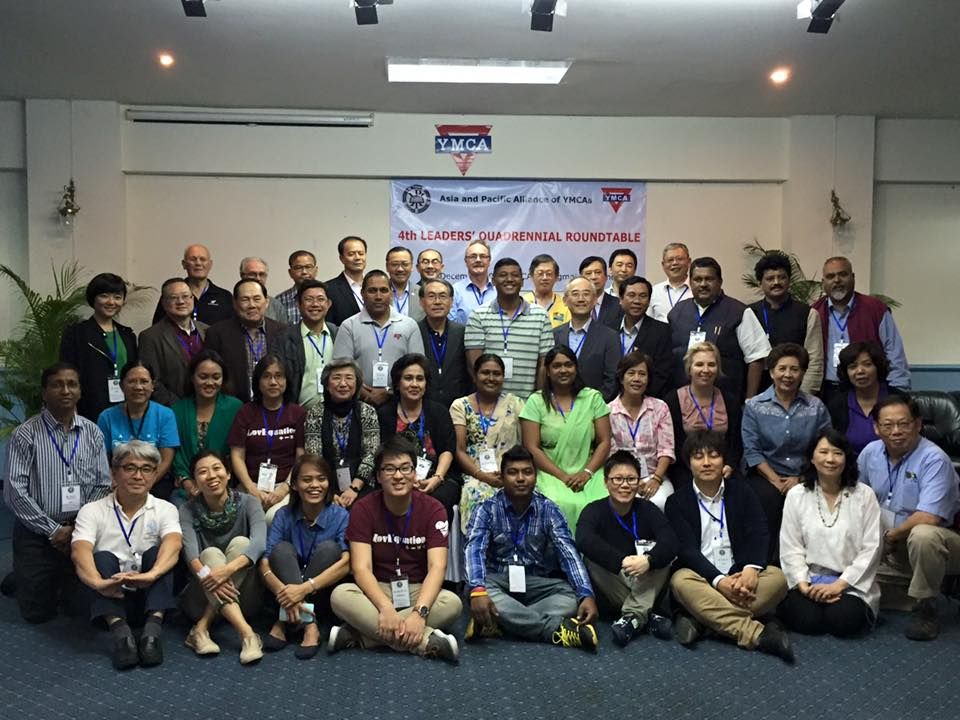
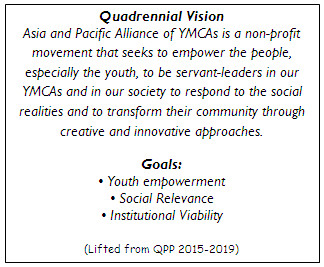 Thus, the Quadrennial Program Plan 2015-2019 developed through a consultative process, calls for each movement in the local, national, sub-regional and regional levels to be catalysts in creating opportunities for youth empowerment, social relevance and institutional viability in order to realize our vision of a strengthened movement where justice, peace and life reign.
Thus, the Quadrennial Program Plan 2015-2019 developed through a consultative process, calls for each movement in the local, national, sub-regional and regional levels to be catalysts in creating opportunities for youth empowerment, social relevance and institutional viability in order to realize our vision of a strengthened movement where justice, peace and life reign.